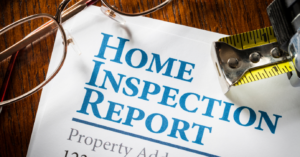
An electrical safety check for your house may seem inconvenient, but try not to think of it that way! Performing an electrical safety check on a regular basis is critical for the protection of your family and property.
What determines if you get a Pass / Fail?
The National Electrical Code (NEC) specifies the criteria that your house must meet.
These are safety regulations that have been evaluated and shown to give the best protection against fire and electrical dangers.
They’ve also been updated to guarantee that your home is well-equipped to meet today’s electrical demands. The version of the Code in effect determines whether your house will receive a pass or a fail.
Here are 4 ways from Comet Electric can ensure your home passes an electrical inspection.
#1 Ask the Inspector First.
When you arrange the inspection, attempt to have a discussion with the inspector about what they anticipate to observe and how you might avoid the hazards. Although all inspectors should look for the same things, some have specific criteria or pet peeves that might cause you to fail. Getting in touch with them initially is a wonderful approach to put a face to a name and learn about their general needs.
#2 Proper Circuits
Your inspector will verify that the home or addition has the appropriate number of circuits for the space’s electrical consumption. During the final inspection, this will entail ensuring that there are dedicated circuits for appliances that require them. A dedicated circuit for each device that requires one, such as the microwave oven, garbage disposer, and dishwasher, is important, especially in kitchens. The inspector will also verify that each room has the proper number of general lighting and general appliance circuits.
#3 Tie Your Grounds Together
The ground wires should be connected together in each outlet or electrical box location. However, don’t connect anything else together. The neutral and hot leads should be kept separate.
#4 Safety Inspection Checklist
Here is the ultimate safety inspection checklist get your pen out and start checking these off!
- Are your outlets warm to the touch?
- Do outlets make sounds, like buzzing or crackling when you plug appliances in?
- Are your light switches loose to the touch?
- Are your extension cords rated properly for indoor or outdoor use?
- Does the extension cord feel hot to the touch when it’s in use?
- Is there enough air circulation around your dryer and refrigerator?
- Do you have any kitchen appliances near the sink or other water sources?
- Does your washer/dryer move erratically when in use?
- Are your circuit breakers labeled properly?
- When last have you had your electrical panel checked?
- Do you have problems with circuit breakers tripping?
Other Technical Issues
During an examination, an electrical inspector may check for some more technical concerns.
While it is better to leave identifying these flaws and bringing them up to code to a professional, it is a good idea to be aware of them and do your best to ensure that your equipment is as safe as possible when an inspection is done.
- Broken/missing breakers in the electrical panel
- Water intrusion
- Corrosion
- Wires are properly color-coded
- Clearances
- Take electrical readings
If you would like to learn more information about different ways that you can prepare for an electrical insurance inspection to ensure that it goes as smoothly as possible for your home, or to find out about the services we offer at Comet Electric, please contact us at 724-266-7177 and we will help you get the information you need.
[/vc_column_text][/vc_column][/vc_row]


